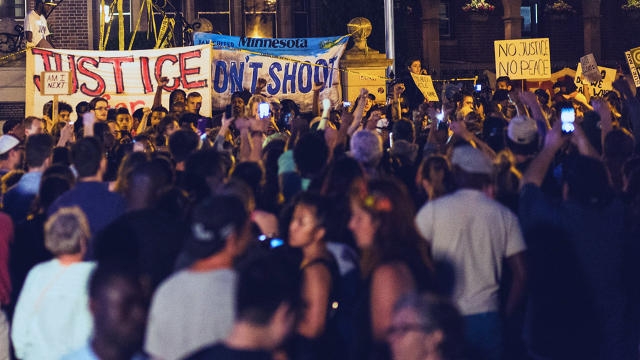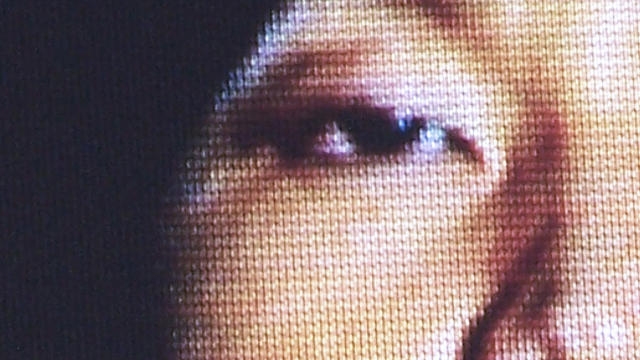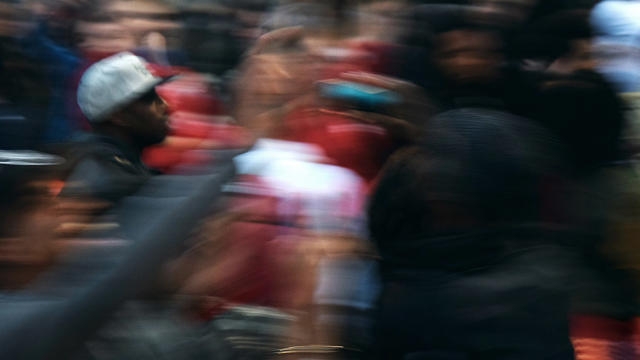
In the past, live content on social platforms such as Facebook has always been under the control of humans, but the emergence of AI is changing all of this.
A week ago, African-American man Philando Castile was shot by an American police officer and his girlfriend used a mobile phone to broadcast the entire process on Facebook, but soon after, the video was "technically broken down." Clear. After a while, just yesterday, another shooting video went viral on the social media. The incident took place in Norfolk, Virginia. A black young man and two friends were shot while listening to music in the car. The black man also broadcast the event and the video was not deleted.
As more and more violent content emerges on the live stream, social platforms such as Facebook and Periscope are constantly exploring what role they should play in screening user-visible information and how their review teams can complete information review tasks.
For the second question, they came up with an idea: Use AI to filter information.
New York’s Dextro Corporation is working to use machine learning to interpret video sound and image information. Its co-founder, David Luan, said: “The major technology companies have mastered the technology and are able to block live or recording. Erotic information in the video.†This type of video analytics software is already in use, monitoring videos posted by Periscope, YouTube, Facebook, etc., and filtering out exposed erotic content.
"We were able to pick out a video containing guns or parades," said Lu An. And it's very fast. He revealed that once the video is released, it takes only 300 milliseconds to confirm all the information in the video. For Facebook, a social platform with 1.65 billion users, fast screening of information is critical. Because of the spread of the video, the impact is huge.
Lu An said that overall, great progress has been made in image recognition over the past two years. Companies including Dextro use algorithms and models to extract concepts from streaming video to help companies and users find the most interesting content or find more relevant videos. Similarly, AI is mastering techniques for analyzing images and video. Cortex, Twitter's AI team, uses large artificial neural networks to learn real-time information about Periscope users and optimize user recommendations.
Previously, Facebook, which has “made big bets†on static image recognition technologies such as face recognition and object recognition, and has made great progress, is now also devoted to the research and development of video analytics systems.
"Interestingly, artificial intelligence algorithms now report more "sensitive" images than humans report," said Joaquin Candela, head of the Facebook machine learning application team, in an interview with TechCrunch in March. "If we can use artificial intelligence 100% of the information will be checked, and the less "sensitive" pictures people will come across."

AI can also tag keywords or describe everything in the video "Happy" or "Anger". Clarifai is also a company that uses machine learning to analyze video files. Its software recognizes 11,000 different objects and scenes. Mathew Zeiler, the company’s co-founder and CEO, said that AI can identify fighting scenes in video by familiarizing people with clenching fists in the fight scene. If we can make AI familiar with the pictures of various weapons, then many situations are in our grasp, Zeiler said, "Because we can see the picture of these weapons in advance." Once AI confirms the target, it will immediately take action — - For example, close the video or change the reviewer.
Although researchers have made significant progress on the "church" computer to discern static images, analyzing videos is much more difficult. To this end, Twitter's AI team used a high-performance graphics processor to assemble a supercomputer dedicated to video analytics research.
DeRox's Luan said that artificial intelligence has no way to fully grasp the situational context as humans do. “If someone has encountered a very fierce questioning and the method of being questioned is not appropriate, then it is necessary to grasp the key points of this scene. The entire incident, but artificial intelligence does not have the ability to look at the overall situation."

For example, at a prestigious university in the United States, a black man smashed the meaning behind the act of depicting the stained glass windows of the black slaves in the cotton field; or after the British announced the Brexit plan, a group of white youngsters from Manchester The subtle defamatory words hidden from a man who was suddenly rushed into the tram and hushed in darkness were all AI's indiscernible. The cultural and historical information in such scenes cannot be captured by AI, at least not at present.
However, in the live video of Diamond Reynolds, AI identified the policeman's gun at Philando Castile and the black guy who was bleeding in the seat. The AI ​​filtered this video in time, but if it were someone who reviewed it, it was hard to say.
It is not clear that Facebook is using AI to clear bad information, but so far humans still control the censorship system. Once a user has a high click through rate for a live or uploaded video, that video will be sent to the four major censors at the social platform, located in Menlo Park, Austin, Dublin, Hyderabad. The reviewers in these four cities are responsible for curbing the spread of file flow that violates Facebook community standards. Threats, self-mutilation, “dangerous organizationsâ€, bullying, criminal activities, “forbidden itemsâ€, nakedness, hate speech, and promotion of violence are all prohibited by community standards.
One of Facebook’s videos removed this year is from Paris. The picture shows that an ISIS loyalist illegally killed a senior police commander and a police officer. Another from Milwaukee, USA, three young people uploaded a porn video. However, on a street in Chicago, a man recorded the process of being murdered during the day and uploaded it to the Facebook homepage. This video was not deleted.
Right now, the human censorship system is still indispensable, partly because AI cannot make accurate judgments on all scenarios. Although AI is much faster than human beings in finding signs of violence, when people analyze complex situations and events, they have to be led by humans, such as the aforementioned dispute between Manchester Youth and passers-by.
However, everything is changing. Luan said, “The development of AI is changing with each passing day.†In addition, the rapid advancement of gesture recognition technology has also accelerated the pace of AI's maturity. Although AI is still unable to identify hidden weapons, it is likely to achieve this goal by the end of this year. .
Although the contents of the AI ​​can be more and more detailed, it does not mean that human control and filtering of information has become completely past. For any web platform, the most crucial daily routine is still a wide variety of information that is marked and passed between human users. For the most part, these tagged messages represent what many users want to browse. In addition, the role of the human examiner is irreplaceable in the screening of information that meets the public interest and value.
Facebook's criteria for judging videos posted on its platform remain unclear. Perhaps with the continuous development of AI, the accuracy of its identification will be greatly improved, so as to undertake more censorship, social networks such as Facebook, Periscope and other video control will also be more clear and transparent.
Ip67 Waterproof Hcf Power,Ip67 Led Transformer,Ip67 Led Transformer 24V,Led Transformer 24V 250W
Jiangmen Hua Chuang Electronic Co.,Ltd , https://www.jmhcpower.com